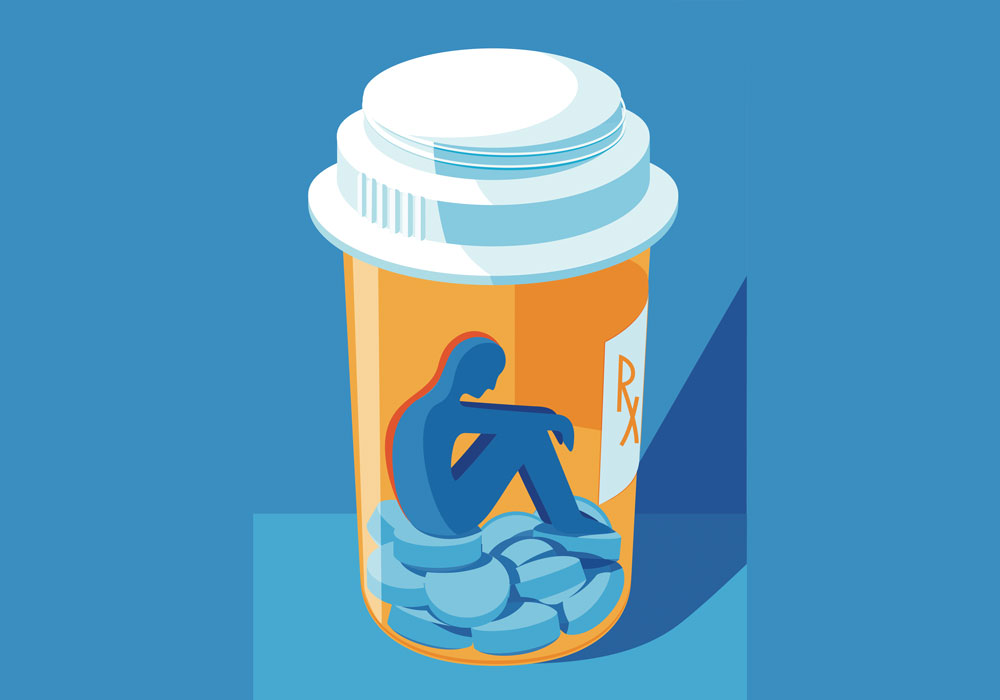Access to treatment for opioid use disorder is a priority in the Biden-Harris administration’s healthcare program, with resources from the U.S. Department of Health and Human Services (HHS) dedicated to raise awareness of the issue. In April 2021, HHS released new practice guidelines to expand evidence-based treatment to more Americans with opioid use disorder.
The Practice Guidelines for the Administration of Buprenorphine for Treating Opioid Use Disorder exempts certain healthcare workers from federal certification requirements relating to training and counseling that are part of the process for obtaining a waiver. The exemption applies to their treatment of up to 30 patients using buprenorphine, according to an HHS press release. Buprenorphine is approved by the U.S. Food and Drug Administration to treat opioid use disorder as a medication-assisted therapy as part of a comprehensive treatment plan that includes counseling and behavioral therapies.
HHS says the practice guidelines and exemptions recommend that:
- Practitioners who are licensed under state law and possesses a valid Drug Enforcement Administration (DEA) registration may be exempt from the certification requirements related to training, counseling, and other ancillary services.
- Practitioners using the exemption are limited to treating no more than 30 patients at any one time. Time spent practicing under the exemption does not qualify practitioners for a higher patient limit.
- Under the exemption, practitioners are required to be supervised by, or work in collaboration with, a DEA-registered physician if required by state law when prescribing medications for the treatment of opioid use disorder.
- Practitioners who do not wish to practice under the exemptions and its 30-patient limit may seek a waiver per established protocols.
- The exemption applies only to the prescription of schedule III, IV, and V drugs or combinations of such drugs covered under the Controlled Substance Act.
- Before treating patients with buprenorphine for opioid use disorder, practitioners must obtain a waiver by submitting a notice of intent to the Substance Abuse and Mental Health Services Administration under established protocols.
“The spike we’ve seen in opioid-involved deaths during the COVID-19 pandemic requires us to do all we can to make treatment more accessible,” Tom Coderre, acting assistant secretary for mental health and substance use, said. “These new guidelines are an important step forward in reducing barriers to treatment and will ultimately help more people find recovery.”
The Centers for Disease Control and Prevention estimated that 90,000 drug deaths occurred in the United States in the 12 months ending in September 2020 and that the COVID-19 coronavirus pandemic contributed to overdose death rates. HHS’s new guidelines are set to help further emphasize the need for accessible treatment services.
“Addiction treatment should be a routine part of health care, and this new guideline will make access to quality treatment for opioid use disorder more accessible,” Regina LaBelle, acting director of the Office of National Drug Control Policy, said. “The guideline is another important step forward in our efforts to bend the curve of the overdose and addiction epidemic.”
Approximately 20%–50% of all patients with cancer and 80% of those with advanced disease experience cancer-related pain. Opioids are an important treatment option for the right patients, but the benefits of their use must be balanced with harms. ONS offers resources to prevent opioid misuse while managing cancer pain.
Nurses have a responsibility to educate all patients on opioids and opioid misuse to lower opioid-related death rates. Join ONS and other health organizations in advocating for strategies for safe access and careful use in light of the opioid epidemic.






